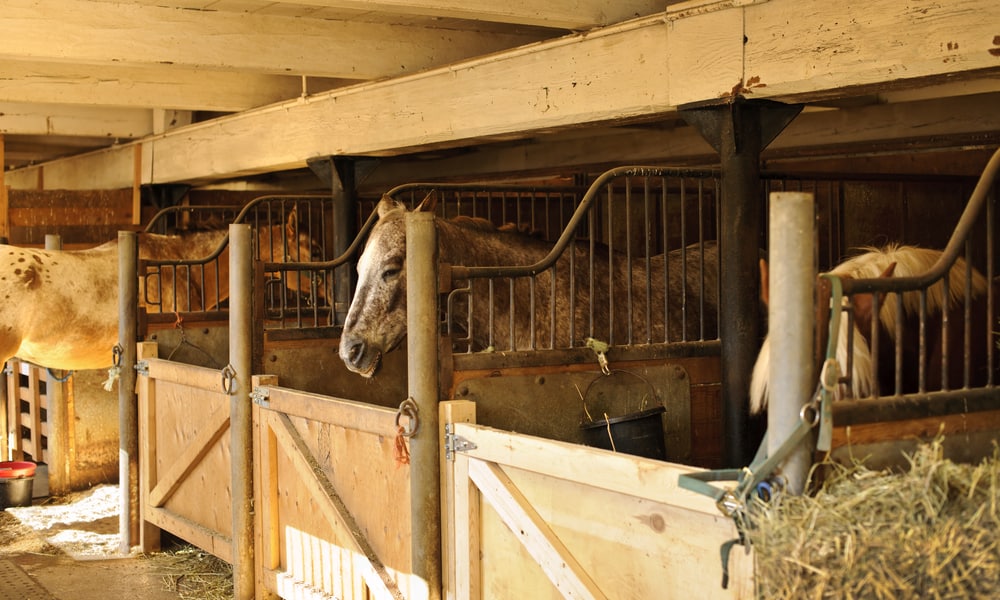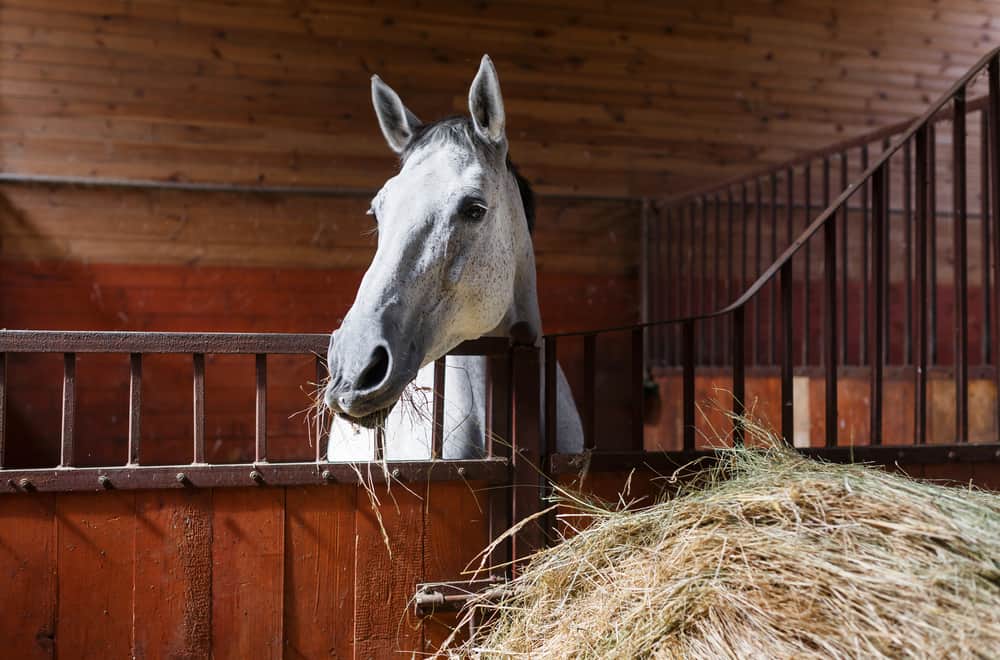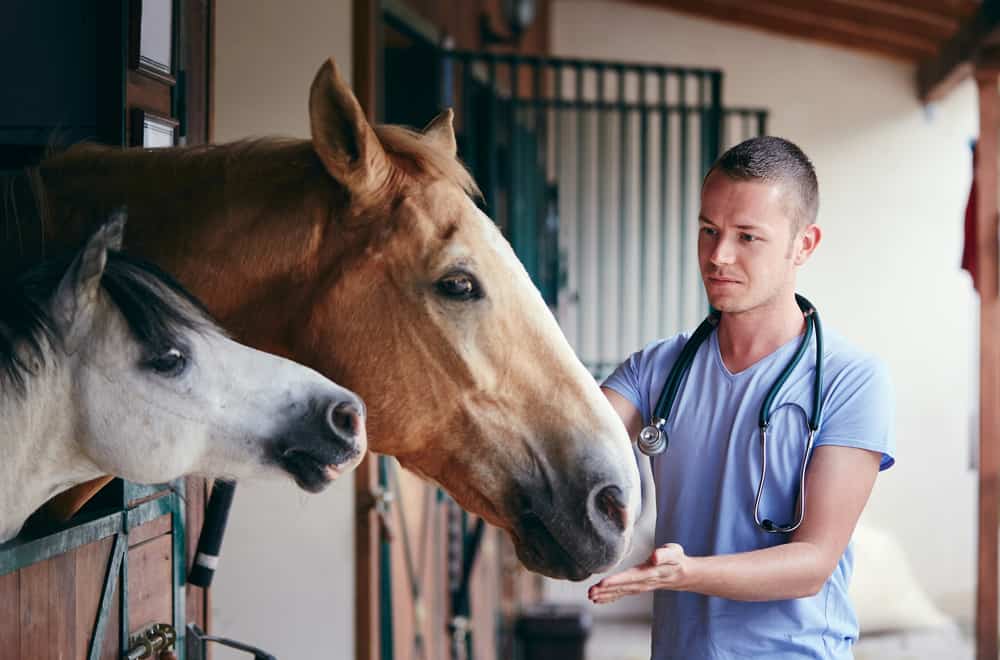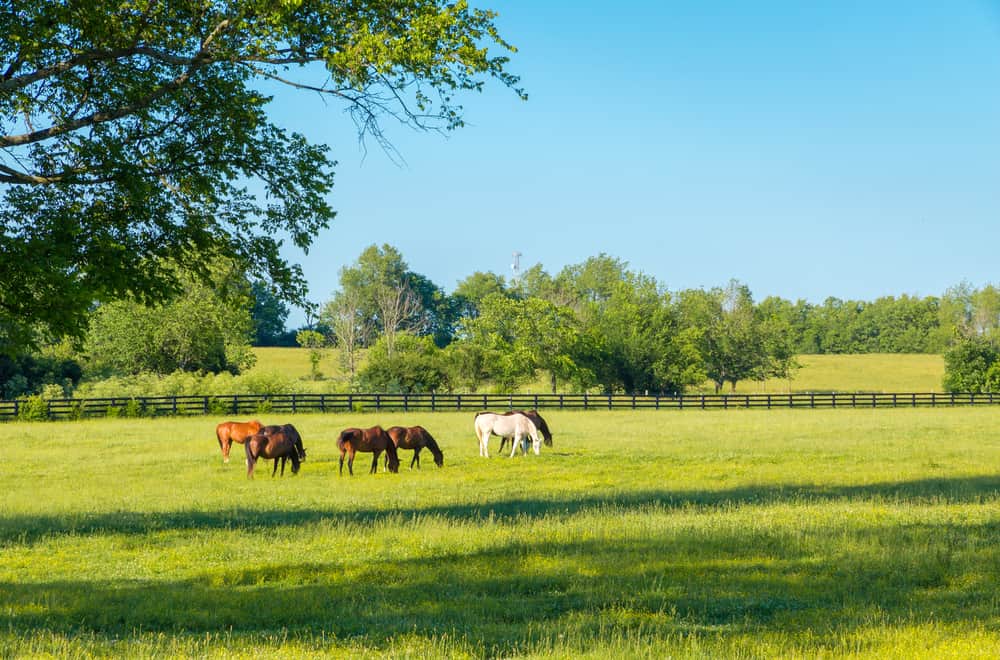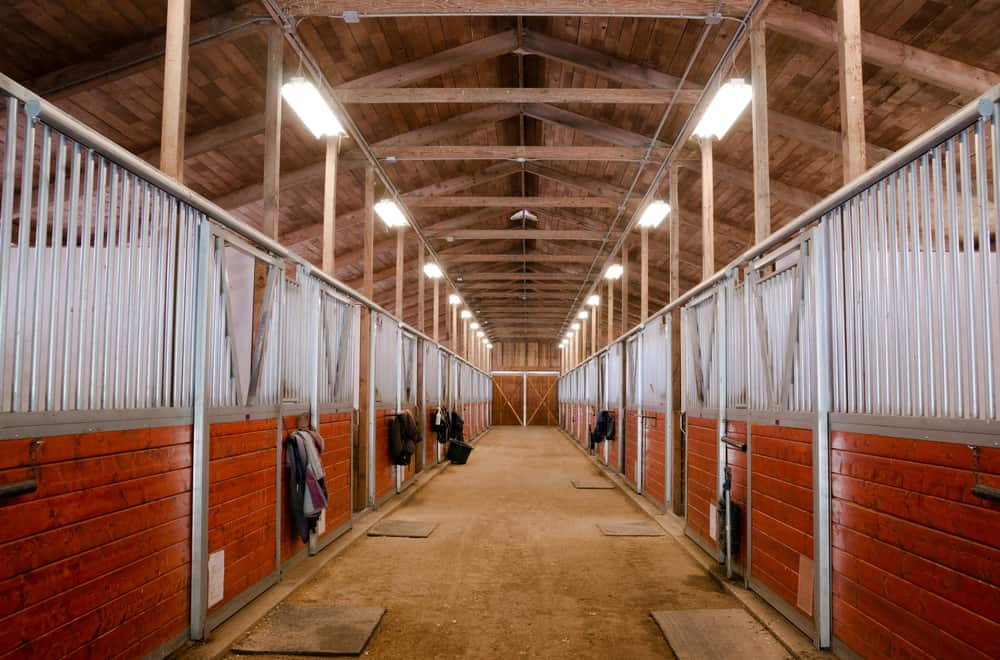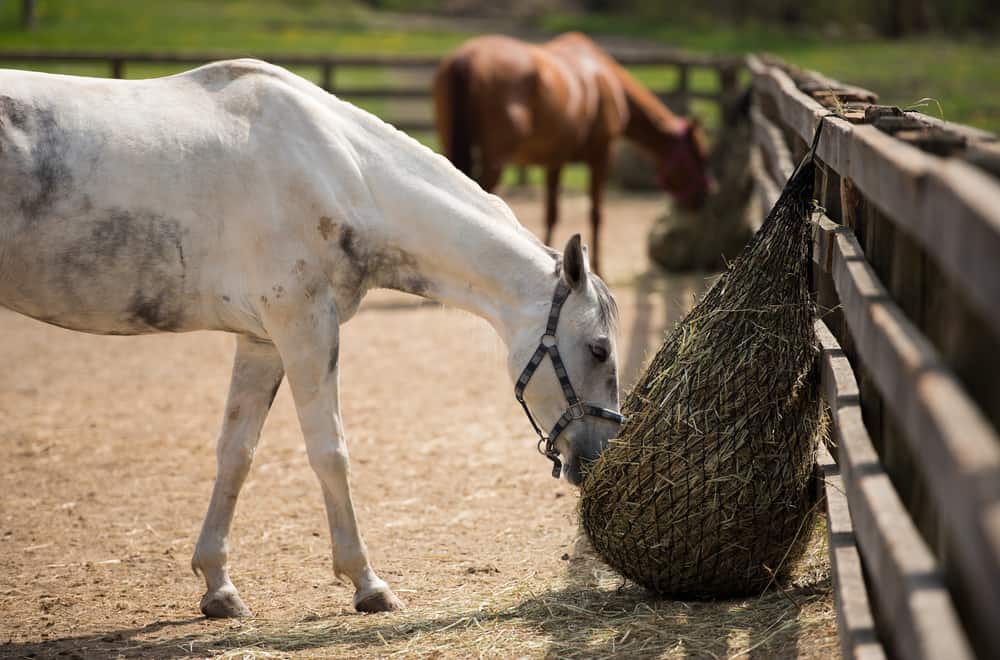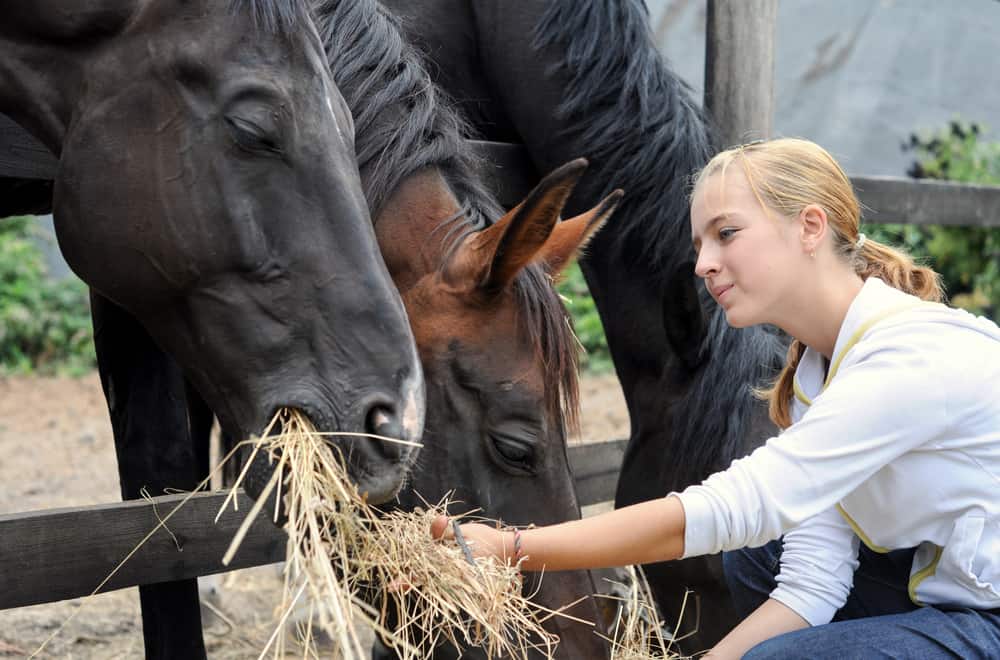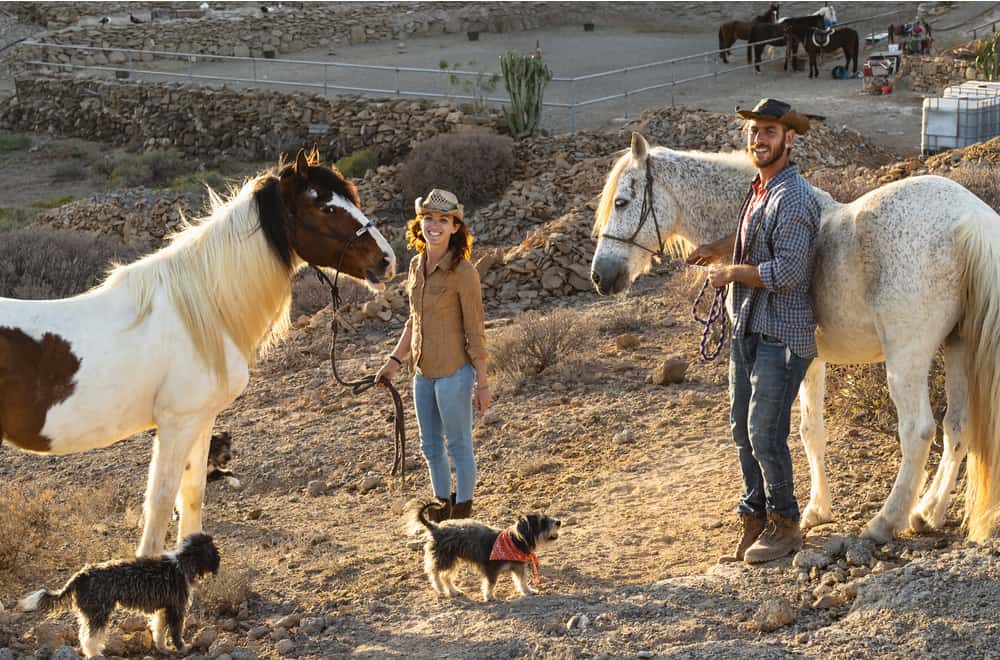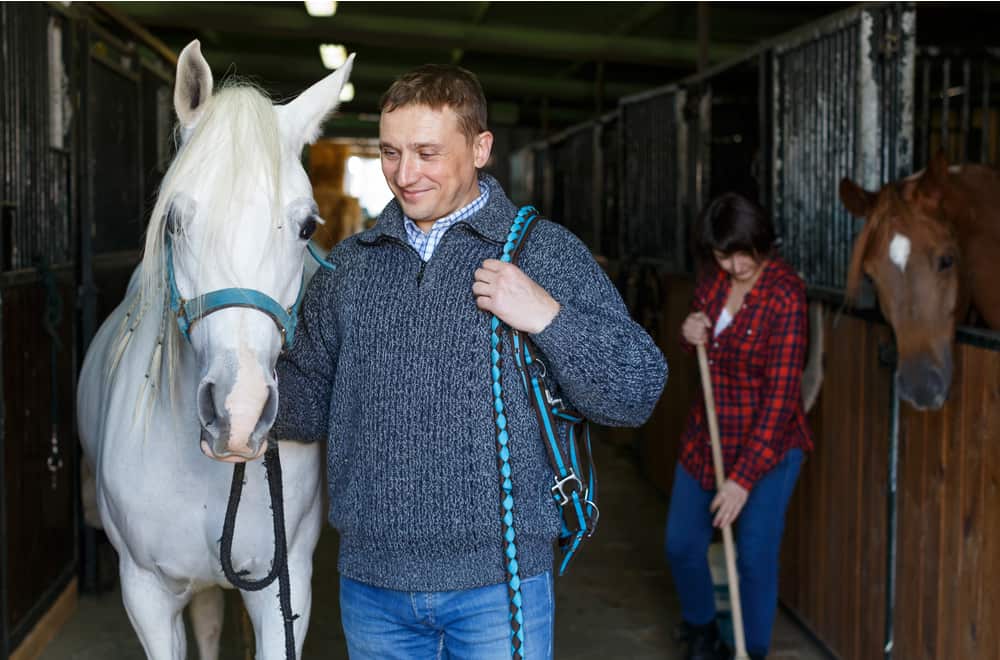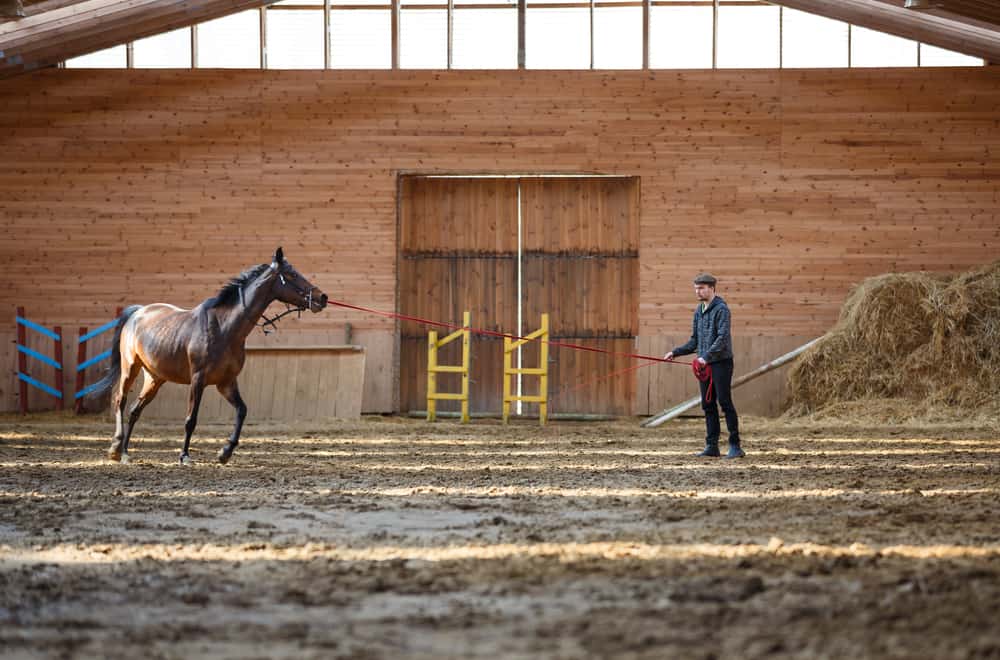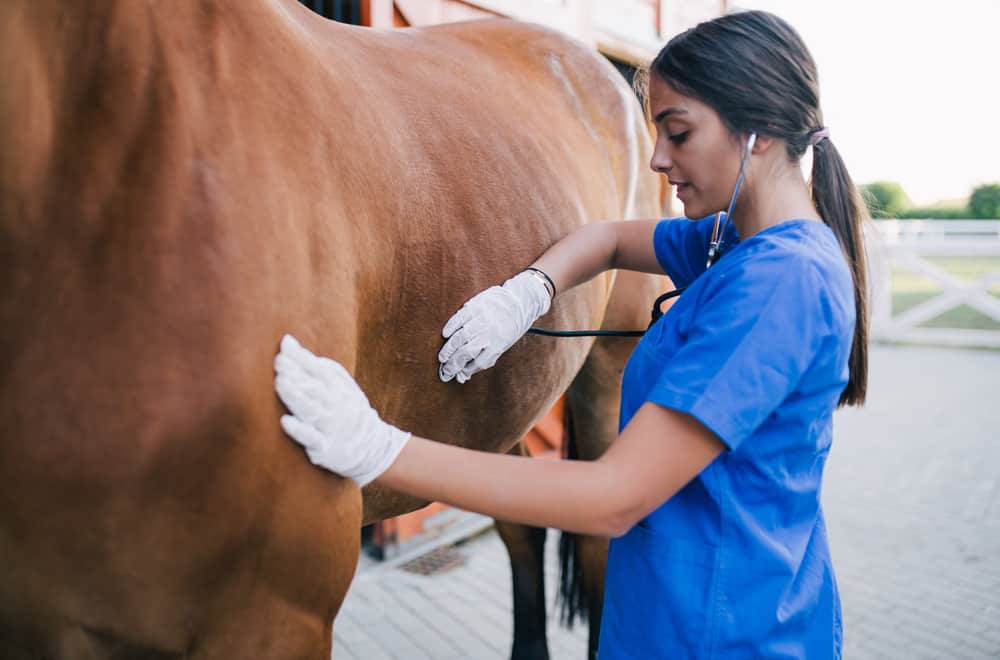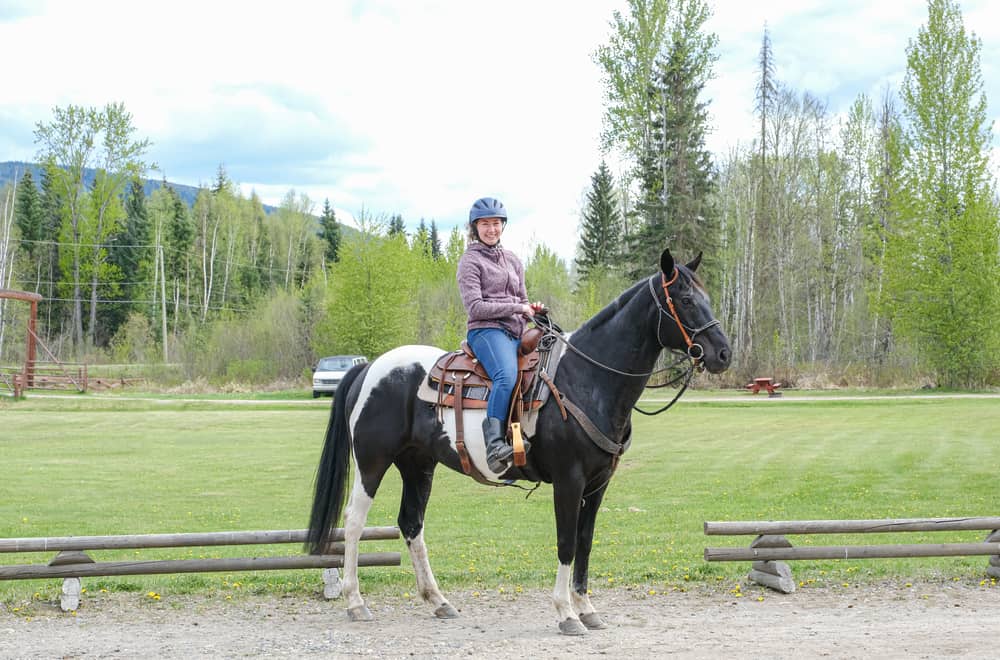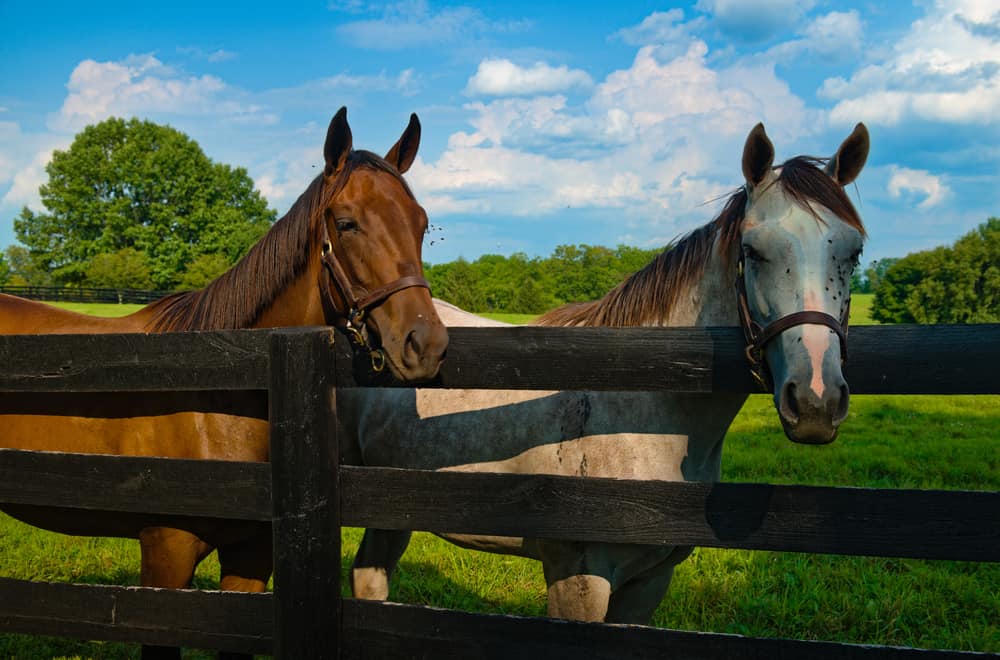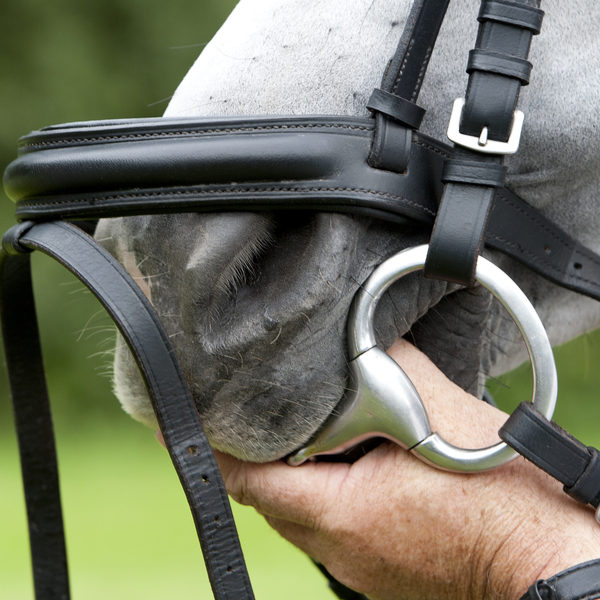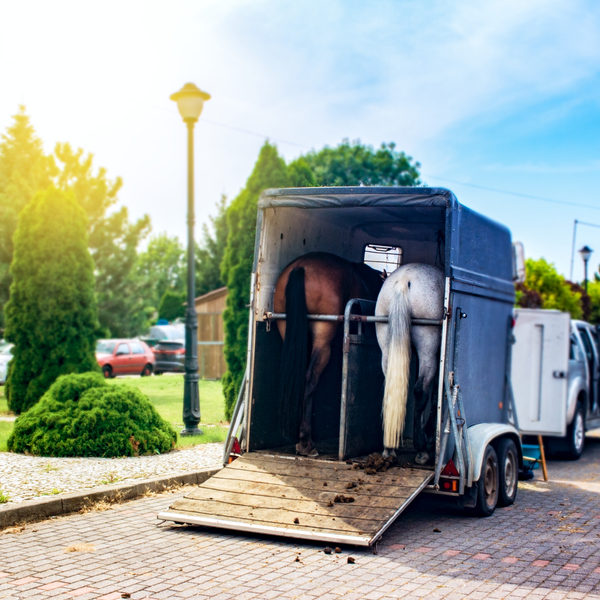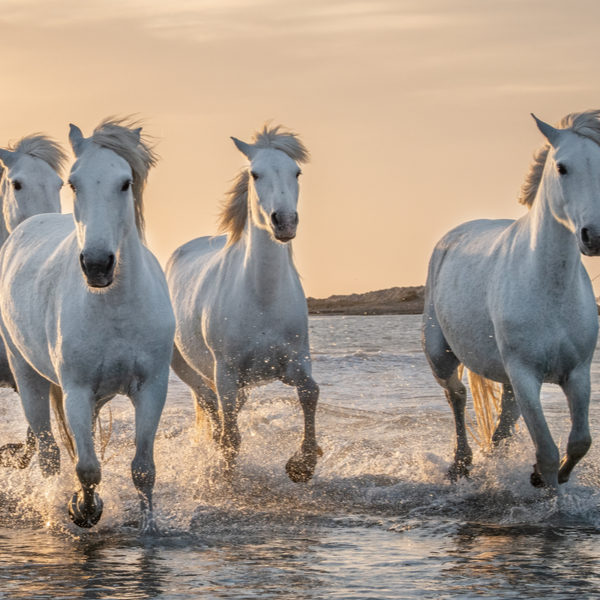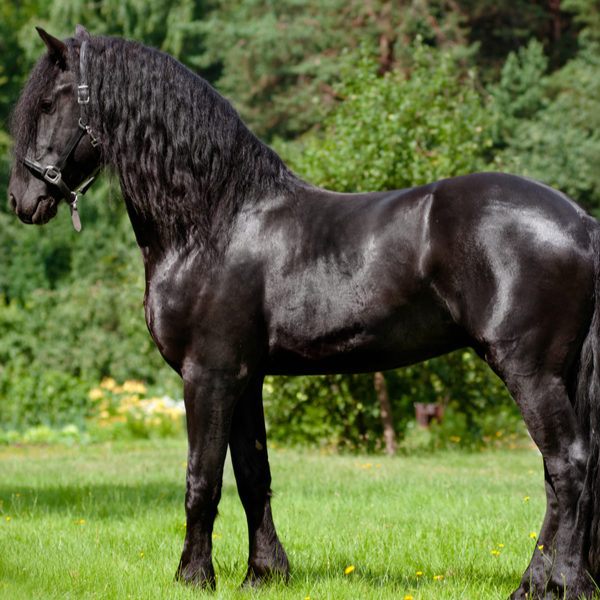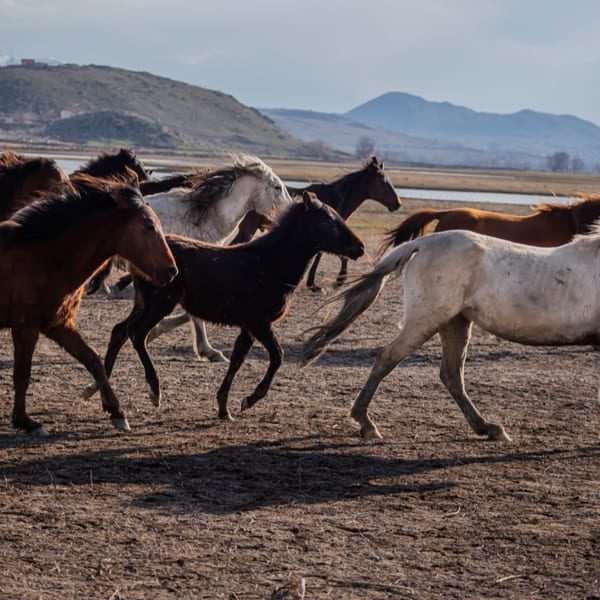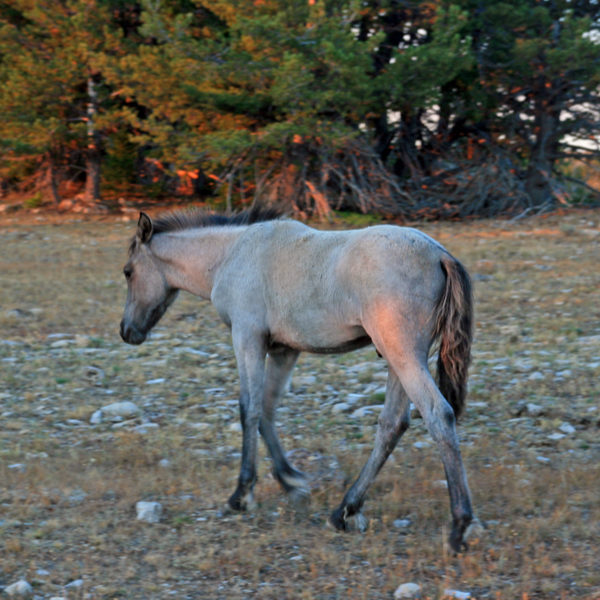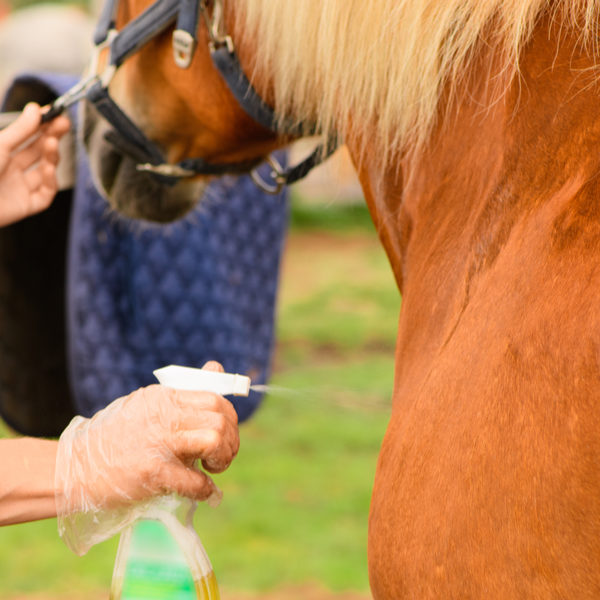Once you decide to buy a horse, you will have an enjoyable time looking for the one that fits your needs and wishes best. Riding, playing, and maintaining your new animal will be a pure pleasure without any doubt.
Unfortunately, one thing can make your life with a horse miserable. Finding excellent accommodation to keep your new pet can be an absolute nightmare. First, you need to pick out the right place nearby and decide which horse boarding type fits you and your horse’s needs. Plus, you should check and compare prices regarding its accommodation. Let’s take a look.
What Is Horse Boarding?
Horse boarding is basically horse accommodation at someone else’s facility for a fee. In an ideal case, you live in your property with an adequate stable and can spend time with your animal whenever you want.
Unfortunately, people living in urban areas can’t afford such a luxury, but it shouldn’t be an obstacle to realizing your dreams and buying a horse. Since there are various options, depending on the region where you live, you should spend time looking for the best facilities nearby your home.
The first thing to do is to check the boarding types they offer, prices for each solution, and available services they provide for asked money. For instance, your horse will need access to trails, arenas, and appropriate training.
Such a place will also provide care for your horse’s daily needs when you are prevented from coming and taking care of it yourself. It is ideal for busy people or those who live too far from places suitable for horses living.
Keep in mind that horses are lovely animals, but they are also a big responsibility. Therefore, it is not enough to buy one, but you should also:
- Spend time with it
- Feeding it regularly
- Providing fresh water at any time
- Take care of your animal’s health
- Clean the stall regularly
Boarding allows you to let someone else do it for you for an agreed price.
Horse Boarding Types
You will be surprised when you discover how many different boarding possibilities you have at your disposal. You can find the right option, depending on:
- Horse accommodation type
- The service type you are looking for
- The price
- The specific requirements you have
Most board facilities offer a few different boarding arrangements, and you can choose the one that fits your needs and budget best.
Horse boarding price |
|
| Boarding type | Costs |
| Full boarding | $300 to $2,000+ |
| Pasture boarding | $100 to $1,000 |
| Stall boarding | $200 to $2,000+ |
| Paddock boarding | $200 to $1,000 |
| Self-care boarding | $100 to $500 |
| Partial care boarding | $250 to $400 |
| Sharing boarding | Half a price of chosen boarding type |
| Cooperative boarding | Depending on tasks you accept to finish |
| Training boarding | $550 to $2,500+ |
| Retirement boarding | $350 to $400 |
| Private arrangement | As agreed |
1. Full Boarding
Full boarding includes everything your horse needs without your participating in feeding, maintaining, and taking care of its wellbeing.
In other words, the staff will entirely look after your animal for an agreed price. You should set aside approximately $300 to $2,000 for average monthly expenses in such a case. Sometimes, this number is even higher, depending on the horse breed and demanding benefits.
You can come and ride or enjoy its company whenever you want or can. Even though you can make any agreement available, the primary offer of such a place includes:
- A place in a stable or appropriate shelter
- Food twice a day, supplements, and unlimited access to water
- Grooming
- Necessary shavings for stall floor
- All the equipment for maintaining the facility and cleaning stable
- Maintaining pasture if the price includes daily turnout for exercise
- A place for personal tack storing
- Arena or similar location for riding
In most cases, such an arrangement doesn’t include scheduling for the vet, dentist, or farrier, but you should check for such an offer.
There is always a possibility of adding these services to the basic package. You can also require additional amenities, like blanketing in winter or providing a horse with specialized food or necessary supplements.
Always take care that the boarding contract includes all services you ask for and an exact emphasis on what is necessary to pay extra.
Full care boarding is the most popular option many stables offer as a horse-keeping standard. The barn staff will do their best to fulfill your animal’s daily needs, including a stable to spend time in and a pasture sizable enough for regular turnout. The advantages and downsides of this offer include:
Pros
- Your horse will get complete services although you can’t come to the stable
- The staff will take care of all horse’s daily needs, including specific ones, as agreed
- Your animal will get a stall to stay safe and wormed up during bad weather and protected on hot summer days
- You don’t need to buy necessary food or worry about routine vet visits and scheduling the farrier as agreed
- You can require extra services, like pulling the mane, applying the fly spray, or performing a body clip for an extra charge
Cons
- It is the most costly boarding option you can find
2. Pasture Boarding
Pasture boarding is probably the best offer for a horse and a highly economical solution for you. In this case, your animal will spend all day in a pasture with free access to a shed when necessary.
That way, it will be free to run or walk around without limitation and have a possibility to be protected from cold weather in fall or winter and direct sun in summer.
If you pick out a pasture horse board, you can be sure that your horse will get:
- A sizable pasture for spending a day, with a run-in shed it can use when necessary
- Regular food and water supply
- Other amenities based on the facility location may include space for tack storing and trails for riding
- Vet and farrier scheduling when agreed
- You can also require and pay for blanketing in cold weather
Horses may not get individual daily attention, but the stable staff will keep an eye on them. This solution is ideal when:
- You plan to ride your horse only occasionally and want to provide it with live conditions closest to its life in the wild
- The horse needs time to recover from injury
- Your horse dislikes spending time in a stable
- The animal has specific health reasons for spending time outdoors, including chronic allergies or recurrent airway disease
It is the less expensive horse boarding option but have a few downsides:
- A horse can’t get all it needs, including a stable and daily care
- The staff will take care of the horse’s daily needs, but you need to groom and ride it yourself
- Pasture boarding is sometimes an unsafe option since your horse needs to adapt to the herd
- Some facilities don’t have a boarding solution in case the horse gets hurt
This popular and convenient boarding option will cost you only $150 to $400 a month. In most cases, well-maintained and regularly mowed pasture with proper fencing is usually a comfortable and safe solution for your animal.
3. Stall Boarding
This accommodation option means your horse will get its own space in a stable. Depending on the boarding policy, it will:
- Spend all day and night inside the stall
- Get regular daily exercise in a paddock or pasture
Therefore, you should timely check how much time it will spend inside. Some urban boarding barns don’t have space for extended turnout. Typically, such a boarding type includes:
- Separate boxing in the stable
- Necessary food, water, and shavings supply
- Essential equipment for stall cleaning and regular facility and grounds maintaining
- Space for your tack storing
- Place to ride
- Facultative offers, depending on the facility
If you choose this accommodation type for your animal, you should be prepared to pay at least $200 to $2,000 a month.
4. Paddock Boarding
This boarding type is quite similar to stall boarding, but your horse won’t have its own space in the stable. Instead, it will spend time in a paddock with an adequate shelter for resting. You can find two facility types offering such an accommodation, including:
- Places that house horses in a paddock throughout a day
- Places that provide daily turnout in a pasture
Besides suitable paddock and shelter, this boarding option will typically include:
- Food, water, and shavings supply
- A few amenities available, depending on the facility type
- Necessary equipment for stable cleaning and facility and ground maintaining
- Space for tack storing
- A place for riding and exercising
Paddock boarding will cost you approximately $200 to $1,000, depending on the amenities a chosen facility offers.
5. Self-care Boarding
Some facilities offer a possibility of self-care boarding. In such a case, you should pay $100 to $200 a month on average for bedding, but all other expenses and obligations are on you.
It is the most common option in the horse racing industry. Racehorse trainers often rent a stable near the racing place and take care of the horse on their own. This facility type typically provides:
- Physical space for accommodating a horse, including a stable or shed
- A piece of land for your horse to spend time there
- Access to electricity and water
- A place for manure disposal
- Sometimes, this place offers trails and space for tack storing
In other words, you need to come there every day to:
- Supply food and feed your horse
- Fill the water bucket and keep it clean
- Schedule a vet, dentist, farrier, and groomer
- Clean the stable and change shavings
- Take the horse out for a ride
This option includes your engagement, time, and effort. On the other hand, you and your horse will enjoy such an arrangement, but you need to plan everything thoroughly and prepare supplies on time. Be prepared that:
- Self-care boarding takes multi-hour work
- You have an obligation to look after your horse every single day
However, that is often precisely what some horses and their owners need. So, if you want to bond with your animal at an affordable price, this is the best solution you can find.
The crucial thing is to carefully consider the obligation and commitment levels you can take over. You should always find someone to help you in emergencies and during vacation or business obligations.
This basic and cheap boarding option has its advantages, but also a few disadvantages for some horse owners, like:
Pros
- You can spend time with your horse and bond with it
- You will be aware of its needs and health condition at all times
- It is an inexpensive option
- After meeting other boarders, you can share obligations and help each other look after horses
Cons
- You need to solve any problem concerning horse’s needs
- It is necessary to visit the stable every day, sometimes a few times a day
- You need to purchase hay, feed, and shavings for your pet and deliver it to the stable
- It is on you to schedule a vet and farrier
6. Partial Care Boarding
It is an affordable combination of full and self-care boarding. It will cost less than a full boarding option but require less work than self-care variation.
In such a situation, your horse will get the housing space. You need to supply the feed, hay, and bedding, while the stable staff has an obligation to feed your animal on an agreed schedule.
Some facilities will require you to maintain the stable and sometimes to buy bedding. Always check the conditions they provide before making an agreement. Typically, partial care boarding includes:
- A stable or shed as agreed
- Staff to feed your horse with feed and hay you provide
- Access to electricity and water supplies
- A place for manure disposal
- Trails and space for tack storing
7. Sharing Boarding
It is the option when you agree to share your horse with someone else in exchange for twice as low a boarding price. For instance, this boarding type implies that you should pay less if you allow someone else to ride your horse three times a week.
Sometimes people who look for riding lessons choose this option since they pay less for sharing boarding than regular training. This person can bring his own equipment or use yours, depending on the agreement you make.
You can also share responsibility for veterinarian and farrier services, but it is not a condition. Basically, you can determine all the details as you wish.
If you have a horse and choose this option, you will pay less, but your time spent with the horse will be limited. There is one more problem. You need to find a trustworthy person with similar riding and handling skills for this agreement. Otherwise, a lousy rider may harm your horse.
8. Cooperative Boarding
Many small- to medium-sized boarding facilities and horse owners often look for ways to reduce overall costs whenever possible. Cooperative boarding is an excellent option for you to exchange labor for reduced accommodation prices. In other words, you can accept to:
- Maintain the stall
- Change the bedding
- Feed and groom horses
- Turnout horses
In return, you will get cheaper boarding following the scope of work you undertake. It is fair when the facility owner precisely assesses each chore value based on the hourly rate.
That way, your fee will directly depend on the work you finish each month. Ensure that your boarding contract includes the value of each task.
9. Training Boarding
Training boarding is temporary horse accommodation during the training period. It is a more convenient and affordable option than hiring a trainer to come on your property. While your horse is in the training boarding, you can be sure it will get:
- All services typical for full board
- Regular sessions with a professional trainer
- Space for tack storing
It is not a permanent solution but a way to accommodate your horse during training. As soon as the process is complete, you will need to move your animal to a new barn. Training board will typically cost you $550 to $2,500, sometimes even more, depending on the training level you require and trainer reputation.
10. Retirement Boarding
This option is new in horse boarding offers. It is an excellent solution for people who adore these noble animals but have a problem taking care of elder horses.
Nowadays, you can find facilities specializing in looking after seniors and animals you can’t use for work or ride anymore. Some will also organize a burial on their property or cremation when an animal passes away.
For approximately $350 to $400 per month, you can expect this horse boarding type to include:
- Regular boarding offers
- Specialized facilities and staff educated for handling senior horse needs
- A specific diet for seniors and horses with special needs
- Medication administration
- Sometimes, they will organize burial or cremation as agreed
11. Private Arrangement
Some facilities offer a lower rate for horse boarding when you agree they can use your animal for trail rides or lessons. Be careful since the termination of such an agreement means that you need to pay the total price for complete boarding.
Another issue is the horse’s wellbeing. It is still your responsibility, so the stable owner is not obliged to look after your animal when it gets sick or requires special attention for some reason.
Always precisely clarify all the terms of such an agreement to avoid any possible problems once it comes time to pay up.
Specific Boarding Facilities
Typically, narrowly specialized boarding types will charge their services depending on your demands and scope of work. The most common are:
Boarding stallions
If you look for a quality boarding option for your adult stallion, you should check for specialized accommodation. It needs to be a place with ultra-stout facilities and access to an equine artificial insemination vet expert.
Boarding broodmares
If you have a broodmare, you can opt for appropriate accommodation for it throughout the year or seasonal during foaling.
Such a place needs to provide improved stable or pasture shelter and have an arrangement with an experienced equine vet nearby. You need to pay an additional fee for a foal living with its mother during the first year of life.
Boarding lay-ups
Although most lay-ups work with racehorses, you can consider this boarding type if you have an injured animal and need to accommodate it during the recovery period. In such a case, you need to pay to experienced staff time and expertise to finish specific tasks, like:
- Full boarding tasks
- Hand walking a lame horse or pony
- Dressing changing
- Taking care of an injured tendon
- Ulcerated eye treatment
- Medication administering
Take care that the facility you choose is nearby a top-notch equine vet and farrier.
Factors That Influence the Boarding Cost
Boarding cost significantly varies, depending on a few crucial things:
- Location
- The facility they provide
- Offered services
- Available amenities
- Horse breed and its purpose
- Chosen boarding type
- Your requirements
Location is the deciding factor when it comes to boarding prices. You can expect higher overall costs when choosing the facility in an expensive area.
On the other hand, you shouldn’t ignore the overall quality and variety of services they provide regardless of location. For instance, you will pay more if the facility offers:
- Large and new stable
- Indoor arena
- Groomed riding ring
- Wash racks
- Long trails
- Automatic feeders
Since it is expensive to build and maintain a well-equipped boarding facility, you can expect it will be costly.
Finally, be aware that the accommodation is only a part of the final price. Another thing is regular cost, including feed, hay, supplements, and labor. In most cases, boarding a horse will cost you approximately $5 to $25 a day for primary care.
Additional requirements will increase this price. Therefore, you will need to pay for a professional trainer and vet, dentist, groomer, and farrier visits.
Summary
You should know your horse well before deciding the right boarding type. While some animals enjoy having their own stable without being bothered, others prefer spending time outside in a group.
If the boarding is the only solution you have, you should pick out the best option, depending on your horse’s type and the budget you have at your disposal.
